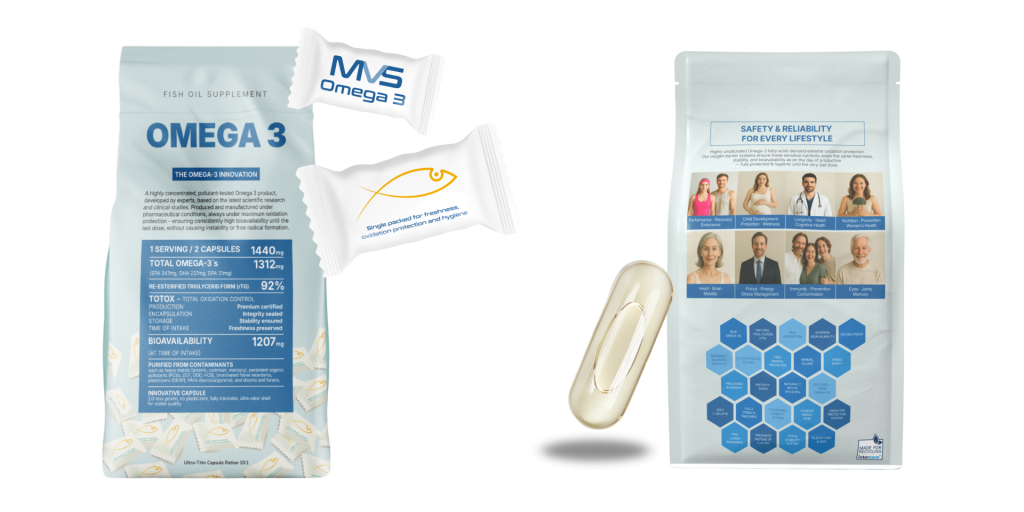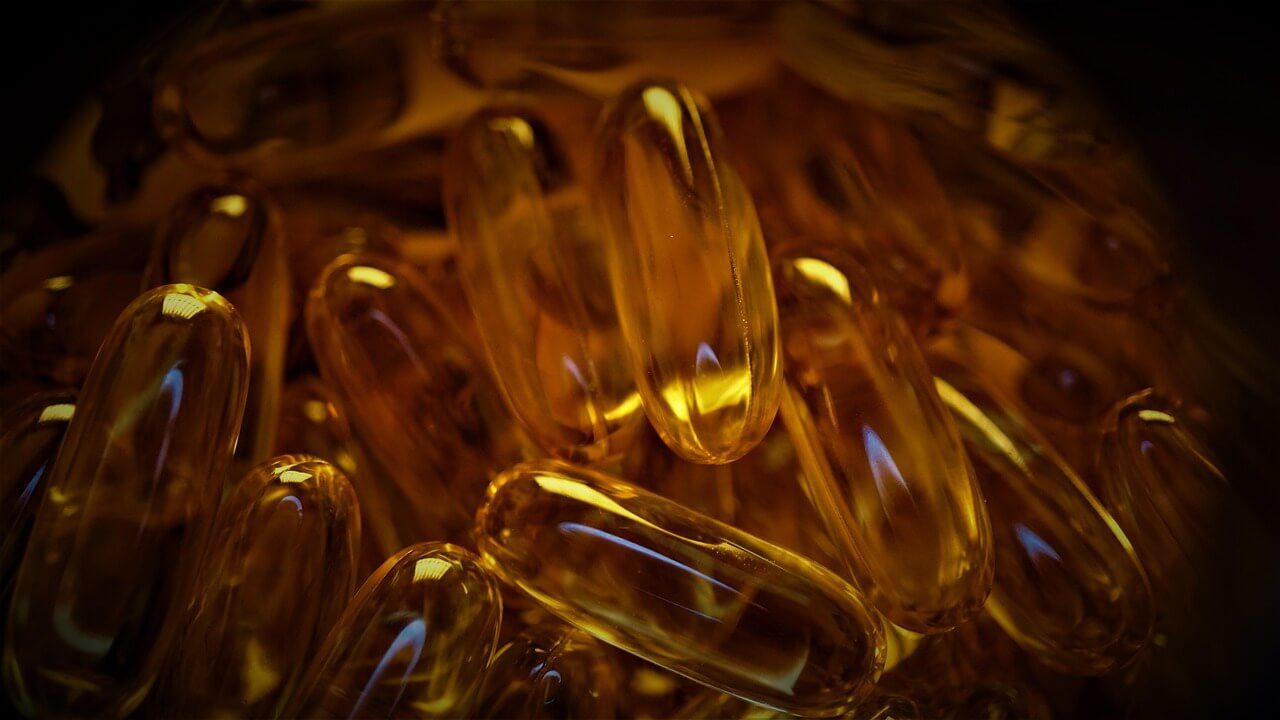Table of Contents
Introduction
Fish oil supplements—once hailed as a universal solution for heart, brain, and joint health—are now under the microscope. While millions continue to take omega-3 supplements daily, recent headlines question their efficacy and even raise safety concerns, such as the increased risk of atrial fibrillation (AFib) with high-dose formulations. As confusion grows among consumers and healthcare providers, this article aims to separate evidence-based facts from fiction, bringing clarity to a trending yet controversial topic.
What Are Fish Oil Supplements?
Fish oil supplements primarily contain omega-3 fatty acids, particularly:
- EPA (eicosapentaenoic acid)
- DHA (docosahexaenoic acid)
These fatty acids are essential for human health and are commonly found in fatty fish such as salmon, mackerel, and sardines.
Supplements typically come in:
- Ethyl ester form (synthetic, less bioavailable)
- Triglyceride form (closer to natural form)
- Re-esterified triglyceride form (highly bioavailable)
The Science: What Do Clinical Studies Say?
- Cardiovascular Health
Early studies, such as the GISSI-Prevenzione trial (1999), suggested significant cardiovascular benefits in post-myocardial infarction patients. However, recent large-scale trials, such as VITAL (2018) and ASCEND (2018), found no significant benefit in the general population for preventing major cardiovascular events.

- Inflammation and Joint Health
Several small randomized controlled trials have shown modest benefits in reducing joint stiffness and pain in patients with rheumatoid arthritis. However, these effects are often dose-dependent and not universal.
- Brain and Eye Health
DHA plays a critical role in brain and retinal development, especially during pregnancy and early childhood. While omega-3s support cognitive function, claims that fish oil prevents Alzheimer’s or improves mental performance in healthy adults lack conclusive evidence.
The Controversy: Efficacy vs. Hype
- Misinformation in Marketing: Many over-the-counter (OTC) brands make unregulated claims, suggesting broad-spectrum health benefits without solid scientific backing. Unlike prescription-grade fish oil (e.g., icosapent ethyl), most supplements lack rigorous quality control, standardized dosing, or clinical validation.
- The AFib Risk: A recent meta-analysis published in Circulation (2021) raised concerns about high-dose EPA/DHA (>2g/day) being linked to an increased risk of atrial fibrillation, especially in older adults or those with pre-existing heart conditions.
This has prompted regulatory discussions and strengthened the case for:
- Using prescription-only omega-3s in high-risk populations.
- Avoiding unsupervised use of high-potency OTC supplements.
What Makes a Fish Oil Product Pharma-Grade-Like?
Pharma-grade-like fish oil differs from standard supplements in key areas:
| Category | OTC Fish Oil | Pharma-Grade-like (e.g., Vascepa®) |
|---|---|---|
| Purity | Variable; may contain toxins | Highly purified, meets strict standards |
| Potency | Inconsistent | Standardized EPA/DHA concentration |
| Regulation | Food-grade (FDA: DSHEA) | Drug-grade (FDA-approved) |
| Clinical Evidence | Sparse | Supported by large RCTs (e.g., REDUCE-IT) |
| Indication | General health | A variable may contain toxins |
Risks of Unregulated Fish Oil Supplements
- a) Oxidation: Many OTC products are exposed to oxygen, light, and heat during manufacturing and storage. Thus, the chance that these omega-3 supplements become rancid before even reaching end consumers is high. Oxidized oils may become pro-inflammatory rather than anti-inflammatory.
- b) Contaminants: Mercury, PCBs, and dioxins have been detected in some fish oils sourced from low-quality raw materials.
- c) Dosing Confusion: Labels often list total oil content, not the actual EPA/DHA concentration, leading to under-dosing or accidental overconsumption.
Consumer Takeaways: What You Should Look For:
a) Choose Reputable Brands: Look for third-party testing seals (e.g., IFOS, USP) that guarantee:
- Purity
- Potency
- Freshness
b) Know Your Dose: Therapeutic doses for triglyceride reduction or inflammation are typically:
- 1–4 grams EPA/DHA per day, under medical supervision
- Lower doses (<500 mg/day) may support general health but won’t deliver therapeutic outcomes.
c) Consider Prescription Options: If you have high triglycerides, metabolic syndrome, or cardiovascular disease risk:
- Discuss prescription-grade omega-3s, such as icosapent ethyl, with your doctor, as they are supported by robust data.
The Future: Toward Regulation and Personalized Supplementation
The growing skepticism is not entirely negative. It’s pushing the industry toward:
- Better labeling laws
- Prescription-only high-dose omega-3s
- Personalized nutrition based on genetic, lifestyle, and clinical data
AI-driven diagnostics and home testing kits are expected to become mainstream in the next 5 years, offering more precise omega-3 recommendations.
Final Thoughts: Facts Over Myth
Fish oil supplements are neither miracle cures nor useless placebos. Like any intervention, their value depends on:
- The formulation
- The packaging and materials
- The dose
- The individual’s health profile
- And the regulatory standards they meet
We, at MVS Pharma GmbH, urge consumers to:
- Stay informed
- Avoid high doses without clinical guidance
- Demand higher transparency from brands
- Let science—not trends—drive your health choices.
Application to MVS Omega-3 – The New Superior Golden Standard Supplement
At MVS Pharma GmbH, we integrate cutting-edge research into the formulation of our MVS Omega-3 supplement, ensuring superior bioavailability, oxidation stability, and purity.

1. Bioavailability Optimization
- Recent studies confirm that EPA reaches higher plasma levels faster than DHA, guiding our formulation strategy.
- Instead of ethyl esters, we use rTG form (re-esterified triglycerides), which has higher absorption rates. 92% Re-esterified Triglyceride (rTG) Form — structurally identical to natural fish oil for superior absorption (1207 mg bioavailable) and full physiological compatibility.
- Our marine-derived rTG oil contains 480 mg/g EPA and 320 mg/g DHA, ensuring an optimal balance.
- 90% Purified Omega-3 Concentration — delivering 1440 mg total oil with 1312 mg active Omega-3s (EPA 784 mg, DHA 518 mg) per serving.
2. Oxidation Stability
Omega-3 fatty acids are prone to oxidation, reducing efficacy and even becoming rancid. To combat this:
- We use IP-certified tocopherols as antioxidants.
- Our fish oil undergoes state-of-the-art stabilization techniques.
Oxidation markers:
- Anisidine Value: 4 (Max: 8)
- Peroxide Value: 0.1 meq/kg (Max: 1.2 meq/kg)
- Total Oxidation (TOTOX) Value: Premium production certified + Encapsulation: Integrity sealed Storage: Stability ensured + Time of intake: Freshness preserved. Every stage, from production to consumption, is protected for maximum purity and quality.
3. Pollutant Removal
We ensure stringent purification standards by applying advanced molecular distillation, removing:
- Heavy metals (Arsenic, Cadmium, Lead, Mercury)
- PCBs and dioxins (compliant with TEQ WHO standards)
We source our Omega-3 from sustainable fisheries, guaranteeing the highest purity.
- Scientific Validation
- Our Omega-3 capsules undergo independent laboratory testing, confirming high bioavailability, purity, and safety.
- Research-backed formulation integrates insights from Plasma Levels of EPA and DHA after Ingestion of a Single Dose of EPA and DHA Ethyl Esters (2024).
Conclusion
The study provides essential insights into Omega-3 kinetics, helping us at MVS Pharma GmbH refine our formulations. The rTG form of Omega-3 in our products ensures superior bioavailability compared to ethyl esters (EE).
By focusing on:
- Optimized bioavailability through rTG form
- Superior oxidation stability for enhanced shelf life
- Advanced purification to eliminate pollutants
We provide an industry-leading Omega-3 supplement that maximizes health benefits for our customers.


